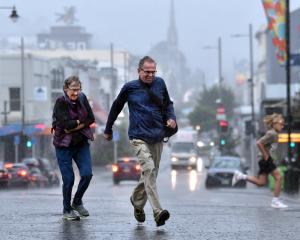
University of Otago academics have joined forces with researchers from Victoria University of Wellington and Massey University to form the Cancer Society Research Collaboration.
Four groups from Otago are involved: the Cancer & Chronic Conditions (C3) Research Group, the Health Promotion and Policy Research Unit, smokefree research group ASPIRE 2025, and the Social and Behavioural Research Unit.
The collaboration will be led by Otago Professors Janet Hoek, Diana Sarfati and Louise Signal, Associate Prof Sue Crengle, Dr Richard Egan and Dr Rachael McLean.
The team includes experts in public health, Maori health, social science, Pacific health and clinical medicine.
Cancer Society chief executive Mike Kernaghan said the new partnership was ''exciting''.
''We expect to see important new knowledge come from this in the prevention, supportive care and psychosocial areas of cancer.''
Cancer is the leading cause of death globally, and in New Zealand accounted for a third of all deaths in 2015.
New Zealand has some of the highest incidence rates of breast, bowel, prostate and melanoma skin cancer in the world.
Dr McLean said the research collaboration was an exciting development in the fight against cancer in New Zealand.
''The University of Otago is delighted to be working with the Cancer Society in this ambitious new programme of work.
''Its establishment is very timely as the Minister of Health is poised to release a new cancer plan for New Zealand.''
Associate Prof Crengle said New Zealand had well-documented inequities in cancer, the most significant between Maori and non-Maori.
''The collaborative aims to reduce both the incidence and impact of cancer in New Zealand and to reduce inequities.''
Specific research themes include skin cancer prevention, reducing obesity and alcohol-related harm, promoting physical activity, preventing infection-related cancers and improving cancer care and support.














